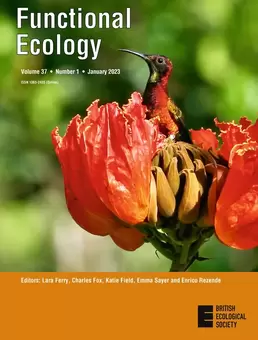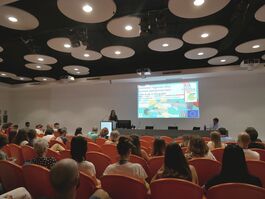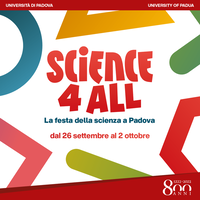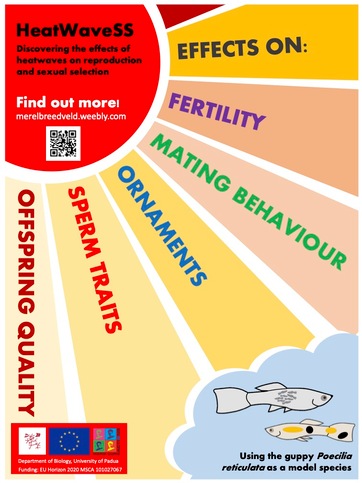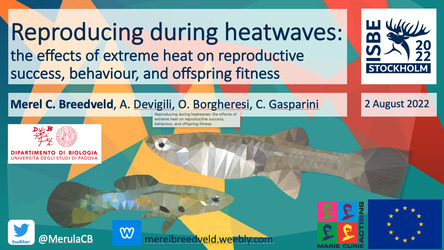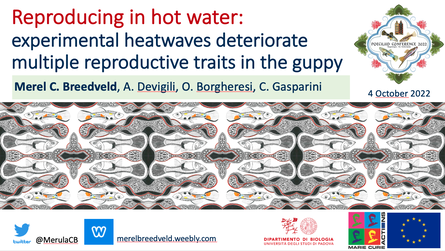Project summary
Climate change is accompanied by an increasing intensity (higher maximum temperatures), frequency, and duration of heatwaves, characterized as a period of abnormally hot weather (IPCC 2021). Compared to climate change predictions of a gradual rise in mean temperature (~4ºC) by the end of the century, heatwaves are occurring now and thus impact organisms and populations as we speak (including human society). Their effects are likely to be important, as heatwaves are unpredictable and non-gradual, and usually represent extreme climatic conditions that go beyond a population´s natural temperature range. Thereby, heatwaves are likely to impact crucial life history traits such as growth rate, reproduction, and survival.
While many climate change studies exist, those investigating the consequences of heatwaves are still scarce, especially in relation to reproduction. The extreme temperatures experienced during heatwaves are likely to have negative effects on many aspects of reproduction (including fertility, morphology and behaviour), thus for the persistence of populations and, ultimately, biodiversity. In the EU-funded HeatWaveSS project we address this key issue of how heatwaves affect traits important for reproductive success, to understand the long term consequences of heatwaves on populations.
While many climate change studies exist, those investigating the consequences of heatwaves are still scarce, especially in relation to reproduction. The extreme temperatures experienced during heatwaves are likely to have negative effects on many aspects of reproduction (including fertility, morphology and behaviour), thus for the persistence of populations and, ultimately, biodiversity. In the EU-funded HeatWaveSS project we address this key issue of how heatwaves affect traits important for reproductive success, to understand the long term consequences of heatwaves on populations.
Progress and news
New publication 2023

Our first big HeatWaveSS experiment has now been published in Functional Ecology!
In the published study, we exposed guppies (Poecilia reticulata) to a 5-day experimental heatwave (32°C, 6 °C above the control) and determined the effects on survival and a suite of reproductive traits including sexual behaviour, condition, ornamentation, and fertility. We found sex-specific effects on survival and reproduction. Females, which were pregnant during the heatwave, had greatly reduced survival and produced near to no offspring. Males showed altered quality of sperm, colour ornaments, and sexual behaviour. Heatwaves thus not only compromise survival, but also key reproductive traits and reproductive success, highlighting the importance of considering heatwaves when predicting how climate change will impact populations. Click on the journal's front-page to the left to go to the original research publication, open access to anyone! Alternatively, you can find a plain language summary here : |
Scientific and public dissemination 2022
During the course of 2022, I have presented the results of the HeatWaveSS project during several (inter)national scientific conferences - including the International Society for Behavioral Ecology Congress (Stockholm, Sweden), the 9th International Conference of Poeciliid Biologists (Wageningen, the Netherlands), and the XXXIX Convegno della Società Italiana di Etologia (Padua, Italy) - and have discussed how climate change and heatwaves affect reproduction with the public, including at our Sci4All stand at the public science event "La festa della Scienza" of the University of Padua.
|
